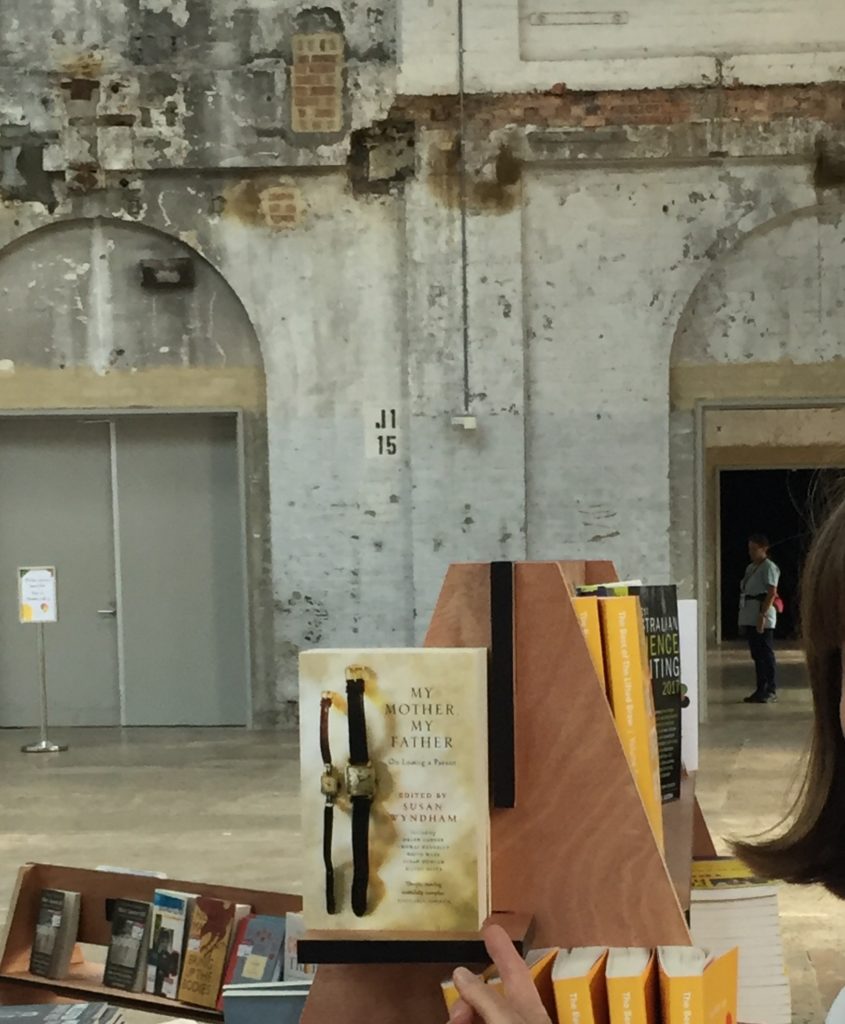Do you want two tickets to Sallie Tisdale’s talk at the Sydney Writer’s Festival?
Just get in touch if you do. I’ll give them to the first who ask for them. (Go by the comment link in Good Grief – I’ll check it often until the day.) The session is at 11.30am, May 2, Bay 20, Carriageworks, Wilson St, Everleigh, Sydney.

Sallie is a guest of the writers festival because she is an astounding storyteller.
She’s a Buddhist, a nurse, a philosopher, and a writer who has tackled many topics including pornography, sisters, care-giving, nursing homes and now death.
I don’t know what she will say. But I can assure she will be good.
I say this because I’ve just read her latest book Advice for Future Corpses (and those who love them).
At this point I have to declare an interest. Sallie is going to say a few words at the launch on May 4 of my book A Good Death: A practical and compassionate guide to prepare for the end of life.
In some ways we’re making the same argument – let’s peel back the covers and stop hiding death so we can be less afraid of it.
I strongly encourage you read her chapter on communicating with the dying. It really cuts through to what’s important.
Sallie’s writing is from an American point of view, and mine is from an Australian. But it turns out both our countries have a big problem in common. Sallie calls for improved palliative care, just as I do – and for the same reason: “Palliative care receives a laughably tiny fraction of the money spent on medical care.”
As an aside, I’d rather have my gall bladder out in Australia. A three day stay and the operation could set you back $68,000 in the US, if you aren’t one of the privileged elite who is provided with exceptional health insurance because of where you work. In Australia, our out of pocket expenses can be high but the hospital based spikes in cost are ironed out by the government – working with our taxes.
Ironically, the Americans do dying at home better than Australians. Because their systems are more openly profit based and there is less financial support from government, their insurers don’t muck about with the fact that dying at home is a lot cheaper than dying in a hospital. So ‘hospice care’ has a very particular meaning in America. Ninety four per cent of this care is done at home. It refers to the suite of programs and services you will receive at the end of life, if you opt to be supported without hospital surgery or other hospital interventions. This is humane and cost effective.
But as Sallie points out, in some cases it only lasts for three days. Ridiculous! That’s like a problem in palliative care in Australia – sometimes it’s offered only for a defined period. If you don’t die in that period, say three weeks, you will be sent to a nursing home. The nursing home might be bad at palliative care, might be good. But it can be a shock to everyone involved to have to make this further move. And for lots of reasons we are not yet at the point where palliative care in nursing homes is universally good.
Photo courtesy of Allen and Unwin
To get a taste of Sallie Tisdale’s suggestions about communicating with the dying, go to “Travel Guide for the end of life” in the Buddhist magazine, Tricycle. See this at:
https://tricycle.org/magazine/sallie-tisdale-advice-for-future-corpses/
Would you like to explore a bit more about Buddhist discussion of end of life? Start with reading The Guardian’s article by Ian Pindar about the first English Translation of The Tibetan Book of Living and Dying.
To find out more about A Good Death: a compassionate and practical guide to prepare for the end of life, go to:
https://www.murdochbooks.com.au/browse/books/other-books/A-Good-Death-Margaret-Rice-9781760637774
For more about the Sydney Writers’ Festival, go to: https://www.swf.org.au/
